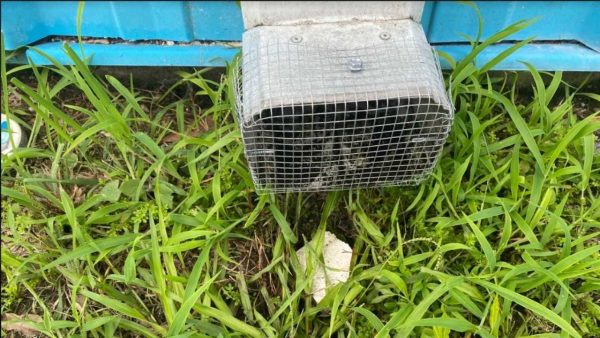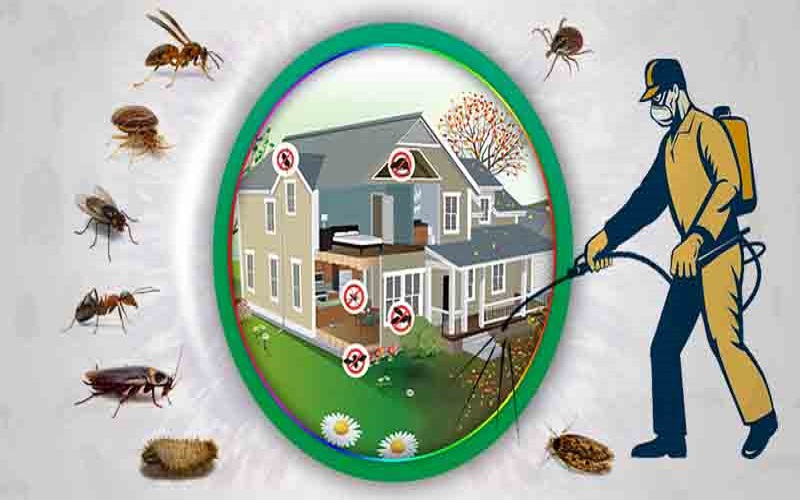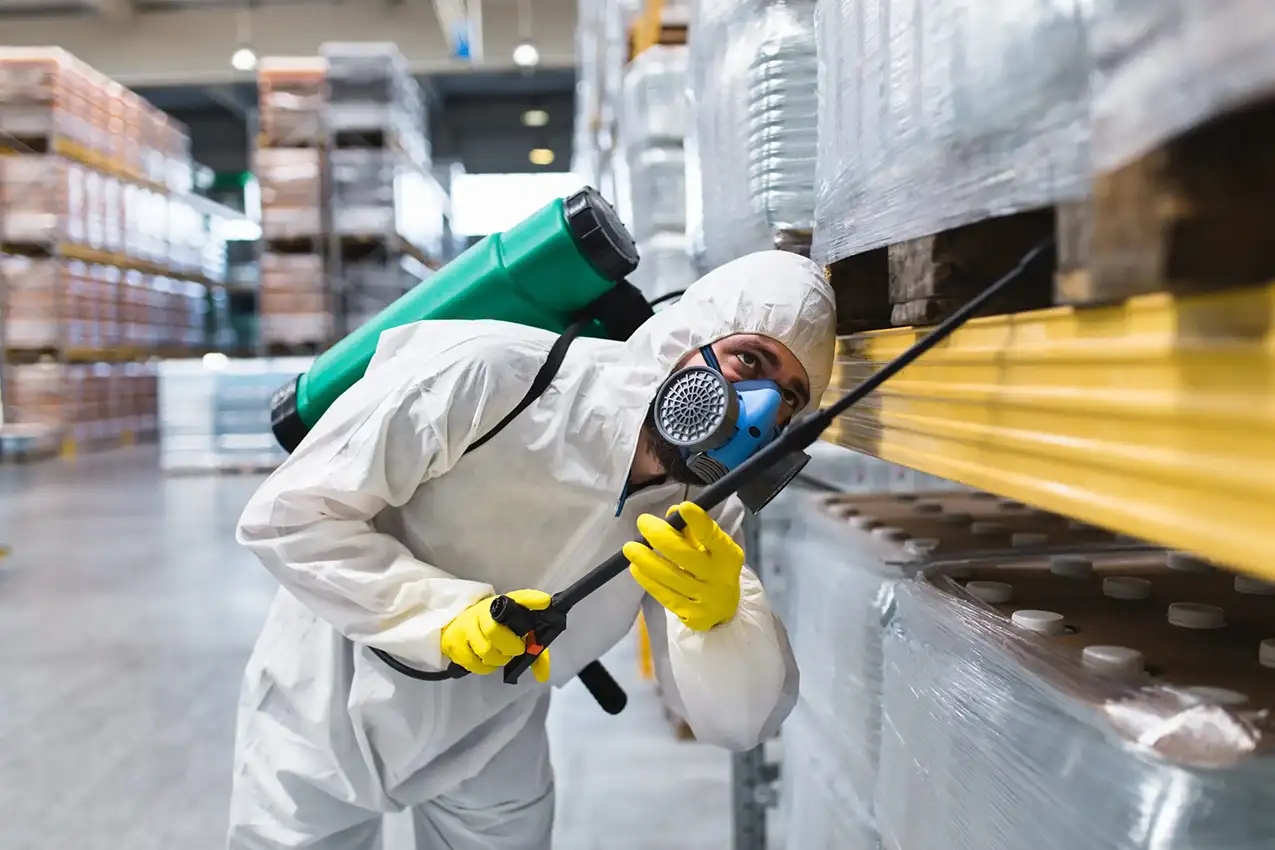Best Pest Control in Charlotte County for Your Home and Business
Discover the most recent Advances in Parasite Control and How to Implement Reliable Treatment Solutions
In the last few years, the area of insect control has actually experienced significant advancements, driven by the need for sustainable and efficient treatment services. Innovative techniques such as Integrated Parasite Management (IPM) integrate environmentally friendly practices with advanced innovation, enhancing both efficacy and ecological responsibility. In addition, the integration of clever technologies and DIY techniques has actually equipped people to tackle bug issues better. As we explore these developments, it ends up being necessary to understand just how ideal to apply these methods in different setups to accomplish ideal results. The ramifications for bug management techniques might be transformative.
Eco-Friendly Bug Control Options
In recent years, the demand for green insect control options has surged as services and property owners alike look for lasting choices to traditional chemical therapies. This shift is driven by expanding ecological awareness and a need to decrease the health and wellness threats associated with artificial chemicals.

Green bug control approaches encompass a series of strategies that prioritize using natural compounds and practices. Integrated Insect Administration (IPM) is one such technique, combining organic, social, and mechanical techniques to take care of parasite populaces while lowering dependence on chemicals (Wildlife removal services). This all natural approach stresses avoidance through habitat manipulation and the introduction of all-natural predators, consequently fostering a balanced community
An additional preferred alternative is using botanical pesticides originated from plants, which have a tendency to be less unsafe to non-target microorganisms. Products like neem oil and diatomaceous earth have actually obtained grip for their efficiency in controlling parasites while posing minimal dangers to human health and wellness and the environment.
Furthermore, exemption techniques, such as securing access points and keeping tidiness, play a vital function in environment-friendly parasite monitoring. By taking on these sustainable practices, businesses and people can successfully manage pests while promoting a much healthier planet for future generations.
Smart Innovation in Insect Management
Development is improving the landscape of parasite management, with smart technology emerging as a pivotal force in enhancing efficiency and efficiency - Wildlife removal services. The assimilation of Net of Points (IoT) gadgets, fabricated knowledge (AI), and information analytics is changing how pest control experts approach problems
Smart traps geared up with sensors can discover insect activity in real-time, sending out immediate alerts to operators. This permits prompt feedbacks, reducing damages and reducing the demand for comprehensive treatments. Additionally, AI algorithms assess historic information to anticipate insect actions, making it possible for proactive treatments based upon ecological conditions and invasion patterns.
Drones and automated automobiles are additionally playing a substantial function in pest administration, supplying airborne analyses of huge locations, recognizing hotspots, and also dispersing targeted treatments. These innovations not just streamline operations but likewise improve safety by restricting human exposure to possibly unsafe chemicals.
Furthermore, mobile applications encourage customers to keep an eye on bug activity and accessibility specialist guidance, promoting a joint technique to pest management. On the whole, the adoption of smart innovation is establishing a new requirement in parasite control, highlighting data-driven choices and sustainable practices that ultimately profit both homeowners and professionals alike.
Integrated Parasite Management Approaches
Integrated Parasite Management (IPM) utilizes a holistic strategy to pest control, integrating different methods to successfully manage pest populations while decreasing risks to human health and the environment. IPM rotates around comprehending the pest life process, their all-natural enemies, and the ecosystem in which they prosper.
Among the basic components of IPM is keeping track of pest populaces via regular inspections and data collection. This permits for the recognition of parasite thresholds, establishing when treatment is required. Cultural techniques, such as plant habitat, rotation, and hygiene control, are necessary in reducing parasite occurrence and advertising plant health.
Mechanical controls, consisting of traps and barriers, are also important in IPM. These methods can literally remove or discourage pests without using chemicals. When necessary, the cautious application of chemical controls is utilized, concentrating on targeted therapies that decrease environmental impact.
Education and learning and partnership amongst stakeholders, consisting of farmers, parasite control professionals, and the area, are important for the successful execution of IPM approaches. By focusing on sustainable practices, IPM not get more just addresses pest issues however likewise promotes a much healthier community.
Biological Control Techniques
Numerous organic control approaches are significantly identified for their effectiveness in handling parasite populaces while advertising eco-friendly equilibrium. These methods harness natural predators, bloodsuckers, and virus to reduce pest numbers without depending on synthetic chemicals. As an example, the introduction of ladybugs can properly regulate aphid populaces, while nematodes target soil-dwelling insect larvae.
Furthermore, the use of microbial chemicals, such as Bacillus thuringiensis (Bt), offers an eco friendly choice for taking care of caterpillar pests. These items especially target pest varieties, reducing damage to useful insects and pollinators. Preservation organic control emphasizes boosting environments for all-natural adversaries, such as birds and advantageous insects, therefore motivating their existence in agricultural systems.
Research study continues to reveal innovative methods within this area, such as making use of pheromones to interfere with pest mating patterns or the advancement of biocontrol agents via hereditary engineering. Carrying out these approaches can cause sustainable bug administration methods that mitigate the reliance on chemical interventions, ultimately fostering healthier ecological communities. As awareness of these strategies expands, they are coming to be integral parts of integrated parasite administration (IPM) techniques, supplying an equilibrium in between reliable bug control and environmental stewardship.
DIY Parasite Control Solutions
As house owners look for effective means to deal with insect problems, DIY insect control solutions have obtained popularity for their ease of access and cost-effectiveness. These approaches why not try this out empower people to address problems utilizing conveniently available materials and methods, usually without the demand for professional treatment.

Additionally, preserving appropriate hygiene and regular inspections can avoid parasite entrance and nesting (Wildlife removal services). Simple practices, such as securing cracks, removing food sources, and decluttering, can dramatically lessen insect populaces. Traps, both homemade and commercially offered, can additionally offer effective solutions for tracking and controlling details bugs like click here for more bugs or rats

Verdict
The integration of environment-friendly insect control choices, wise technology, and ingenious administration techniques offers an extensive strategy to effective parasite monitoring. By accepting Integrated Bug Management (IPM) and using organic control techniques, together with DIY services, liable and sustainable pest control can be accomplished. These innovations not only improve the effectiveness of insect management practices but also contribute to a much healthier setting. Applying these methods promotes a balanced community while efficiently resolving pest populations.
Environmentally friendly parasite control methods incorporate a range of strategies that prioritize the use of natural materials and practices. Integrated Bug Management (IPM) is one such technique, integrating biological, social, and mechanical methods to manage parasite populaces while lowering reliance on chemicals. As recognition of these techniques grows, they are coming to be integral parts of incorporated bug administration (IPM) strategies, supplying a balance between reliable insect control and environmental stewardship.
The assimilation of environment-friendly bug control choices, smart innovation, and ingenious monitoring techniques provides a detailed method to effective parasite management. By welcoming Integrated Insect Monitoring (IPM) and making use of biological control approaches, together with Do it yourself options, lasting and accountable insect control can be accomplished.